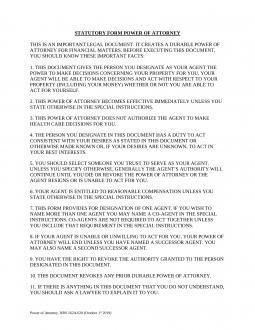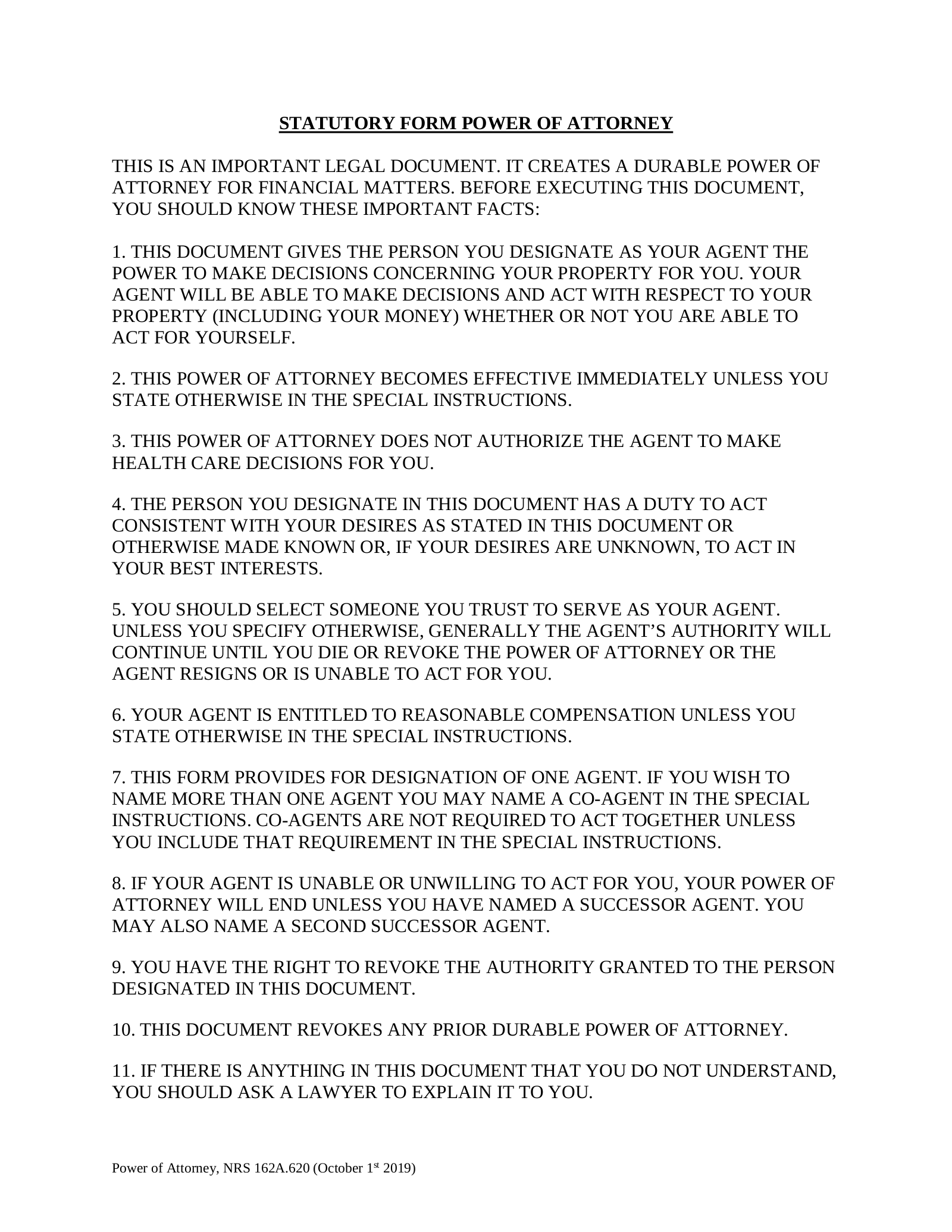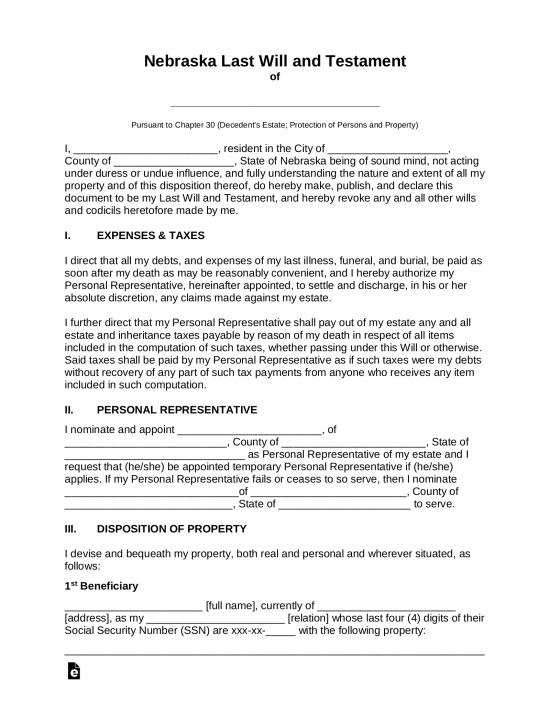Updated August 09, 2023
A Nebraska durable statutory power of attorney form allows a person (“principal”) to transfer the power to manage their property and finances to another person (“agent”). The form remains valid only while the principal is alive and does not terminate in the event the principal becomes incapacitated.
Versions (2)
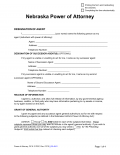 Nebraska Supreme Court Version (Form DC-12)
Nebraska Supreme Court Version (Form DC-12)
Download: PDF
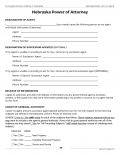 Eastern Nebraska Office on Aging Version
Eastern Nebraska Office on Aging Version
Download: PDF
Table of Contents |
Laws
Chapter 30, Sections 4001 to 4045 (Uniform Power of Attorney Act)
Definition of “Durable”
Durable, with respect to a power of attorney, means not terminated by the principal’s incapacity (§ 30-4002(3)).
Definition of “Power of Attorney”
Power of attorney means a writing or other record that grants authority to an agent to act in the place of the principal, whether or not the term power of attorney is used (§ 30-4002(8)).
Signing Requirements
The principal is required to authorize in the presence of a notary public or another person authorized to take acknowledgments (§ 30-4005).
Statutory Form
The Nebraska State Legislature has made available a statutory power of attorney form at § 30-4041.
Related Forms
Download: PDF
Download: PDF

